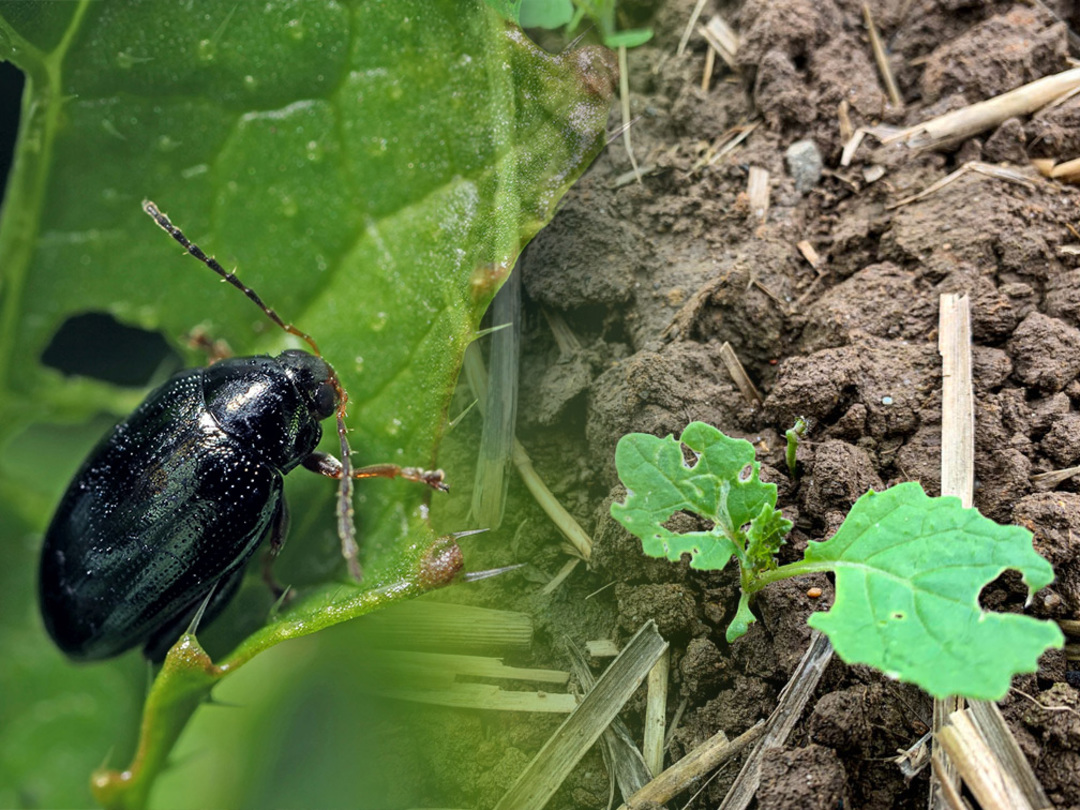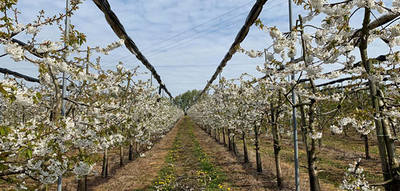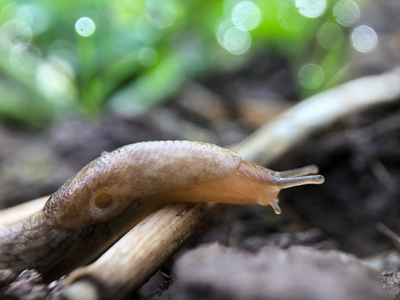 Jul 2022 | Article
Jul 2022 | Article
Strengthen OSR against CSFB

The sustainability of OSR yields in the UK has been questioned since the restrictions on neonicotinoids. However, a series of trials has shown that strengthening the crop using silicon can help to guard against cabbage stem flea beetle (CSFB) by strengthening the plant.
Technical Manager, Kate Williams, explains how using silicon can reduce losses.
“Using a silicon enhanced product such as Sirius, in the tank with an insecticide, will strengthen the plant by increasing cuticle thickness and leaf hair density. This makes the plant less appealing and palatable to pests in general, but we have trial data to show that it is especially efficacious against CSFB.”
Applied at growth stage 10, or first leaf, the silicon is absorbed by the plant and begins to strengthen it. In trials this saw the silicon content of the plants treated increase by 14% after an early post-emergence application. “This was then boosted further by a second application in March which saw the silicon content of the crop increase by 34% by the middle of May,” she says.
The impact of increasing the silicon in the plant was subsequently backed up by the improvement in CSFB control. “After 7 days the crop sprayed with Sirius showed almost no sign of CSFB, whilst the untreated crop showed over 15% feeding damage. This gap further increased at day 14 when the untreated sample was over 25%, but the Sirius sample showed less than 5% feeding damage,” she explains.
By combining silicon with the insecticide there was no additional machinery time required to apply the product and, as a biological product, Sirius can be used in all farming systems. “For those looking to sustain the number of beneficials or establish an OSR crop in adverse conditions, using silicon-based products will help to guard against pest damage. It can be used to help the crop get off to a good start and then subsequently to boost yield by improving the overall health and weight of the crop. With mild winters and increased resistance to pyrethroids, taking a new approach may help farms that want to continue growing this valuable crop,” she concludes.











